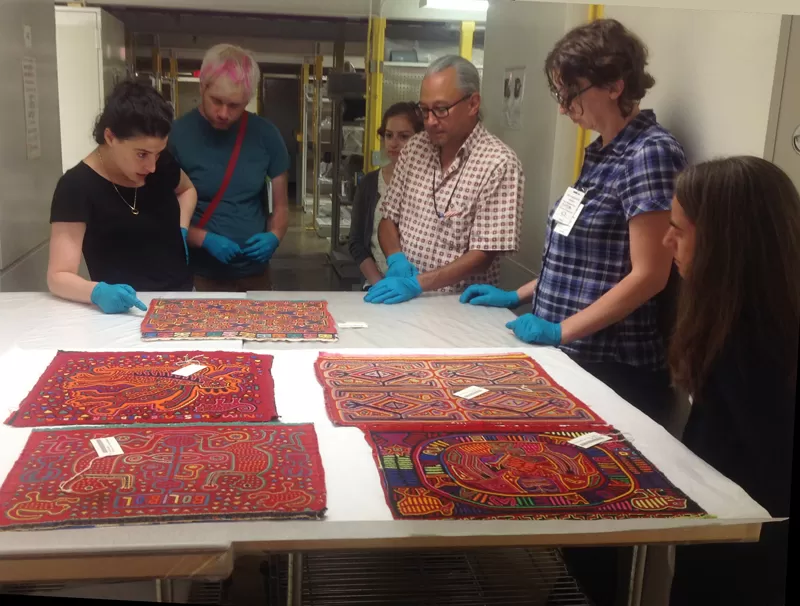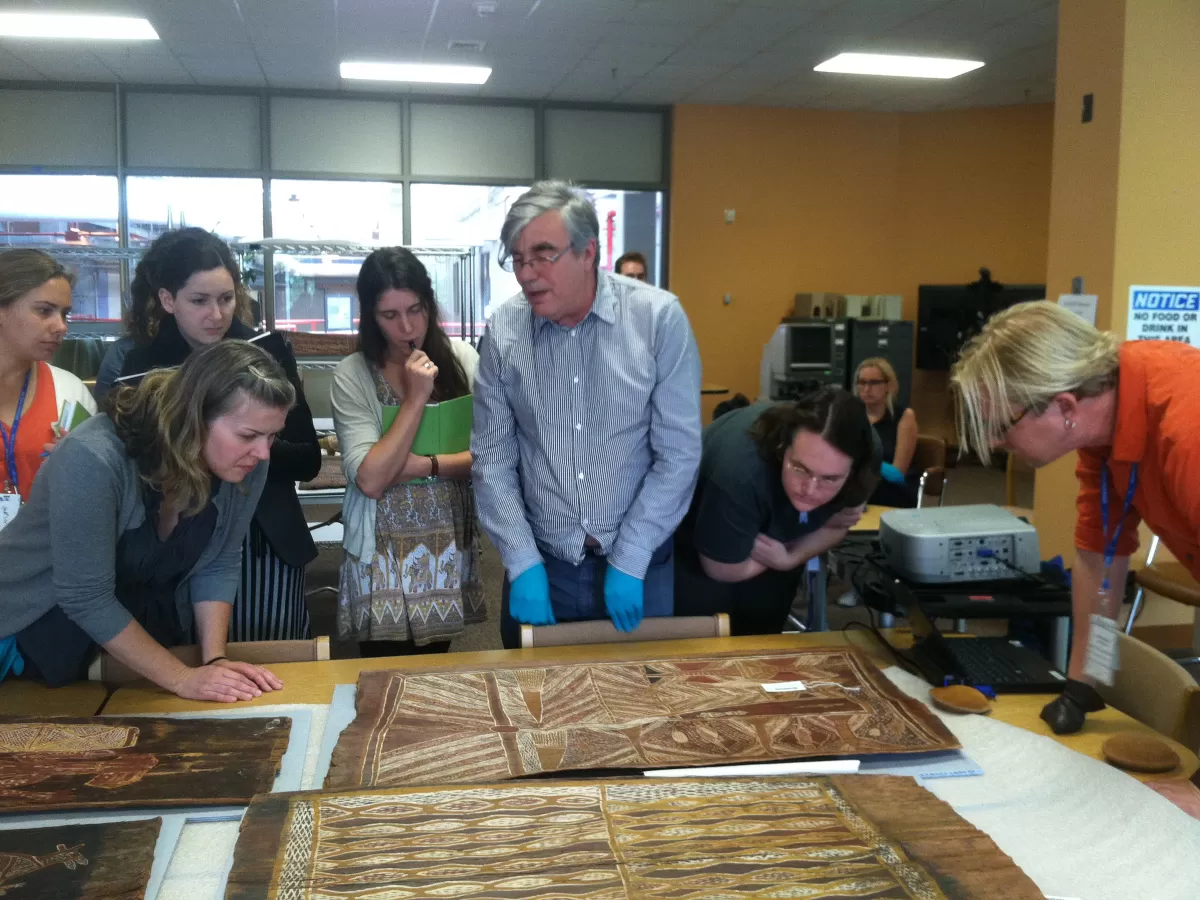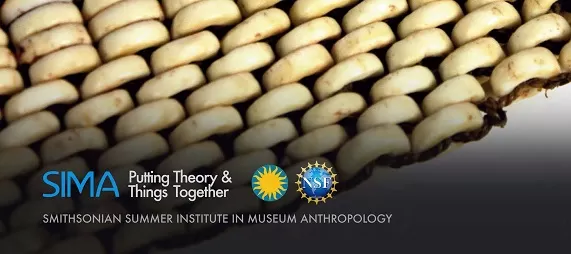
Search
Summer Institute in Museum Anthropology
Overview
The Summer Institute in Museum Anthropology (SIMA) at the Smithsonian seeks to promote broader and more effective use of museum collections – artifacts, audio recordings, art works, still and moving images - in anthropological research by providing graduate students with an immersive, four-week training program and research experience at the Smithsonian Institution. In addition, fellowships are awarded to teaching faculty who are interested in learning how to incorporate museum collections into their teaching.
The program is offered by the Department of Anthropology at the Smithsonian’s National Museum of Natural History, with major funding from the Cultural Anthropology Program and the Documenting Endangered Language Program of the National Science Foundation.
Working intensively each summer with 12-14 students, the institute:
- introduces students to the scope of museum collections and their potential as data
- provides training in appropriate methods to collect and analyze museum data
- makes participants aware of a range of theoretical issues relating to collections
- positions students to apply their knowledge within their own research and at their home university
- advances pedagogical training and methods that helps reposition museum collections as critical data for anthropology

Curriculum
Topics of both seminars and hands-on workshops include the critical analysis of documentation, the development of observational skills, the definition of appropriate data sets, ecological understandings of materials, the potential of Ancient DNA research, conservation analysis, reconstruction of the "social life" of objects and the critical analysis of still and moving images.
Unique Smithsonian resources such as the annual Folklife Festival, the National Anthropological Archives, the Human Studies Film Archives, rotating exhibits, and other museum collections complement lessons in which students explore the integration of museum-based data with other types of information, such as fieldwork and the critical analysis of the documentary record.
Student projects
As part of the application process, students propose individual research projects that they will work on during their time in the program. Applicants are encouraged to contact the program to help develop their project proposal. During SIMA, students continually rework their project proposals as they collect information, become familiar with the nature of museum data, and refine their research questions.
Students may develop projects on any topic for which there are relevant artifacts in the Smithsonian collections. The primary resource is the ethnology artifact collection in the Department of Anthropology and the still and moving image collections in the National Anthropological Archives and the Human Studies Film Archives.
The program culminates in a symposium at which students present preliminary research findings and a refined project proposal suitable for implementation upon return to their home universities.
Application information
SIMA 2024 Dates: June 24-July 19, 2024
Application Deadline: March 1, 2024
Applicants must submit a short statement of interest and an initial proposal for an individual research project. A letter of commitment is required from a faculty member who will supervise further development and implementation of the project in the year after the student's participation in SIMA. Students will be notified of acceptance 4 weeks after the application deadline.
Costs and Commitments
The program covers students’ room, board, and tuition. Housing is provided and a small stipend will be provided for food and other local expenses. Participants are individually responsible for the cost of travel to and from Washington, DC. This is an intensive residential program and the participants are expected to devote full time to the training. Preparatory readings are assigned to ensure that students arrive with comparable background knowledge.
Faculty Fellowship
The Faculty Fellowship is an opportunity for established teaching faculty to develop courses on collections-based research methods.We accept 2-3 faculty each year who are positioned to offer courses on museum research methods, and who would like to use SIMA as an opportunity to observe, learn, and share lesson planning.
Faculty

Instruction is enriched by lectures and collection workshops led by scholars from throughout the Smithsonian as well as by visiting speakers. Faculty at students' home institutions are important partners who will guide SIMA participants in the implementation of what they have learned during the Institute. Such faculty need not have experience in museum-based research, but they must be committed to helping students continue the project they will have begun during SIMA and turn their research prospectus into a publishable paper.

This material is based upon work supported by the National Science Foundation under Grant Numbers BCS-1127060, BCS-0852511, BCS-1424029, BCS-1824641 and BCS-2317314.